|
Good morning!
We're so glad you decided to join us today!
This morning we are not meeting for Sunday School in person. Instead, we are having our church picnic, and are at Cross Creek Park. We hope you choose to read the lesson to finish up our summer quarter, Partners in a New Creation.
When we meet in person, we take some time to share both joys and concerns. Take some time to consider your last week. If you have any prayer requests, you can add them in the comments below this post. When you are ready, use the prayer below (source) to get started.
Dear God,
Thank you for giving us your word. Help us to open our hearts and minds to learn from you. Guide us in our studies, and give us wisdom and understanding. Amen.
This week's lesson is on Revelation 22:10-21.
Lesson Context
Our lesson says that the entire Bible serves as the context of today's lesson! In the Old Testament, a messiah, a deliverer, is promised for God's people. Think of all the prophecies we read as we get close to Christmas.
For to us a Child is born, to us a Son is given; and the government shall be upon his shoulder, and his name shall be called Wonderful Counselor, Mighty God, Everlasting Father, Prince of Peace.
Isaiah 9:6-7
At the time of Christ, around the first century, the Jewish people expected the messiah to be a political and military rescuer. They were under Roman control. God's anointed rescuer would defeat their nation's enemies. Jerusalem and the temple would be free from outside influence.
As we know, the messiah was not a military leader. He came to save all people from their sins, not just the chosen people in the Old Testament. His death was a sacrifice for sins, intended to be effective for all people for all time. He was the sacrificial lamb who took away the sin of the world.
1. Paths, Advent, Separation (verses 11-15)
The beginning of the scripture passage, the apostle John is still being addressed by the angel of the bowls of plagues (Revelation 21:9). This was the angel that was showing John around the New Jerusalem. When the angel says, "the time is near," it gives a heightened sense of the necessary fulfillment of prophecy: Christ will indeed return. The angel says that there are really just two paths that people take: the path of the unrepentant and the path of the repentant. At this point, it seems the judgment has already been determined. Each person will be given to according to what they have done. Those who have chosen the narrow path of repentance will enter the city. Those who have chosen the wide way of unrepentance will be left outside.
2. Testimony, Offer, Warning
Verse 16 features Jesus talking about himself. Prophecies in the Old Testament spoke of the coming Messiah as a "branch" to grow from "roots," (Isaiah 11:1; Jeremiah 23:5, 33:15; Zechariah 6:12). Here, Jesus says he is also the root from which the branch grew. That makes him the Messiah in all fullness. Jesus also calls himself the bright Morning Star. Usually, this is a reference to what we now know is the planet Venus. Our book talks about phenomenological language and typological language. Phenomenological language refers to the way things appear from the point of view of an observer. Typological language deals with symbolic meaning or representation. In this verse, we might think about the phenomenon of the morning star: the planet Venus seems to be the last star visible in the morning as the sun is rising. Symbolically, the night is almost over, and Jesus is coming soon with his life. The Holy Spirit and the body of the followers of Christ, the church, call for faith and obedience. Anyone reading the prophecy is warned to neither add to it, nor take away from it. The punishment for doing so is to be removed from the city. Our book says that reading Revelation is difficult, and that often we only read small parts. Instead, we should read the entire book in one sitting to allow its full message to speak to our minds and hearts.
3. Promising, Longing, Closing
At the end, we get a final reminder that Jesus promises to come soon. There are only two reactions to Christ's return: joy and fear. John adds a short prayer to the end: "Come, Lord Jesus." Our book compares this to Paul's "Maranatha" in 1 Corinthians 16:22. This is an Aramaic word meaning "Come, Lord." This might be the greatest faith prayer a Christian can utter, to ask sincerely for Christ to return. We are left with a final blessing. It was a comfort for the seven churches from Revelation 2 and 3, and it is a comfort for us.
Conclusion
The return of Christ is a key theme in the book of Revelation. We don't know how the second coming or our residence in the New Jerusalem will work. The end of Revelation gives some answers. But it also raises questions. In the end, we do not need to know everything.
Questions for Consideration
If you would like, you can share an answer or thought as a comment since we are not able to discuss these together.
Prayer
Father, thank you for promises both fulfilled and yet to be fulfilled. In this light, we pray, "Maranatha! Come, Lord Jesus!" Amen.
Benediction
This week's benediction is from the New King James Version.
Next week, we will be starting the fall quarter, God's Exceptional Choice. The first lesson will be on Genesis 12:1-5, 7; 15:1-7.
0 Comments
Good morning!
We're so happy you decided to join us today!
Next week, we will not be meeting in person. Instead, we will be at Cross Creek Park in West Middletown for our picnic with Upper Buffalo. We hope to see you there!
When we meet in person, we share our joys and concerns together. Consider the last couple of weeks. What worries did you have, or what were you grateful for? If you would like, you can share prayer requests as a comment to this post. When you are ready, use this prayer (based on this one by Gill Le Fevre) to get started.
As trees are rocked and shaken by storms and strong winds, so we find ourselves challenged and tested. We bring before you now our worries and concerns that threaten to upend us.
Steadfast God, the Tree of Life is the breath of life. Sustain us, we pray, and give us peace. The leaves of the Tree are for healing the nations. There are so many places today that need this help. Grant them all your peace and healing. The branches of the Tree stretch out, sharing your abundance and love. We pray for the opportunities to stretch out in our lives and share your love with those around us. Guide and encourage each one of us as we strive to do your work in the world. The Tree bears fruit, ripe each month, bringing food and reassurance. We pray for those around the world who do not have sufficient food, struggling in famine or poverty. We pray for those worrying about the resources they need, fearing or dealing with scarcity. Bring aid and support to all those in need. The roots of the Tree give strength and endurance, fed by the water that flows from the sanctuary. Your love and teaching brings us the guidance and support we need. Thank you for leading us in our days and showing us how you would have us live. Thank you for the confidence we can have in your love for each one of us. The Tree of Life stands tall in your creation. We give thanks for all the trees, beautiful in their diversity. Guide us to take better care of the natural world, and preserve and restore it for generations to come. The Tree of Life is the breath of life. Sustain us, we pray, and give us peace. Amen.
This week's lesson is on Revelation 22:1-7.
A feature of the New Jerusalem drawn from the Old Testament is the tree of life. This mysterious tree is referred to in three books in the Bible. It first appears as an important part of the Garden of Eden (Genesis 2:9; 3:22). A tree of life is also mentioned four times in the book of Proverbs as a metaphor for divine wisdom (3:18), the fruit of righteousness (11:30), desire fulfilled (13:12), and properly used tongue (15:4). We should note that this is a tree of life, not the tree of life. The tree of life mentioned in Revelation is a primary feature of “the paradise of God”. Some have referred to this paradise as Eden restored, as people eat the fruit of the tree with God’s blessing.
Water is closely associated with this tree in today’s lesson. The image of water is used in both physical and spiritual senses in the Bible. In a physical sense, fresh water has as its opposite water that is brackish (bitter). Fresh water sustains life, brackish water - or lack of water altogether - yields the opposite. The ultra-salty Dead Sea is aptly named! The prophets Ezekiel and Zechariah had visions that bear similarities to John’s vision of the New Jerusalem. A feature of the city foreseen by Ezekiel and Zechariah was a river flowing out off it. The water of this river is so refreshing that it not only nourish life; it changes the ultra-salty Dead Sea into a freshwater lake. In revelation, the concept of spiritual water includes the property of eternal life. Such water is seen as a divine gift, and ever-flowing fountain that provides life to those who drink from it.
Conclusion:
Many things have clearly defined beginnings and ends. Transcending all our starts and stops of life is the timelessness of God, who was there at the beginning and will be there at the end. He is the Alpha and Omega, with an enduring nature that stretches beyond the range of human understanding. All this is illustrated by the New Jerusalem, a city to feature a physical size that is beyond our comprehension. It will be a city with unending day, an ever-flowing river of life, an ever-bearing tree of life, ceaseless worship and priceless building materials. It will be ever new. Such will be our relationship with the Lord. That relationship will be eternally consistent, pure, and true. Yet this description fails to describe the relationship fully, for there is a limitlessness on God’s side. Nonetheless, we are blessed by John’s revelation to us of his visions. May we be faithful in keeping the lessons we learn. Prayer Father, we barely understand the marvels of your promised holy city, a place where you will provide all the light we need for our eyes and hearts. May we hold these promises tightly so that when your son returns, he will find us faithful and ready. We pray this in his name. Amen. Thought to Remember Seek and share the living water now!
Benediction
Our benediction this week is from the New Revised Standard Version.
Next week's lesson will be on Revelation 22:10-21.
Good morning! We're glad you decided to read the lesson today!
This week, we are having worship at the Washington County Fair. We are not meeting in person. We hope we get to see you at the fair!
This week, we are not able to be together for Sunday School. So take some time to consider your last week, and any prayer requests you might have. If you feel comfortable, you can add them as a comment on this post so we can all pray. When you are ready, use this prayer (source) to get started as you read the Sunday School lesson.
Lord, thank you for this time you’ve given me to open your Word and discover who you are. Thank you that you don’t leave us in the dark about who you are and what you are doing in the world, but that you have revealed yourself and your will through the Bible, your sacred words to us. Lord, I need wisdom as I read your Word. You promise us in James 1:5 that we only have to ask for wisdom to receive it. Lord, please give me your wisdom now as I approach your word. Help me discern the truth of this text. Help me not rely on my own understanding. Thank you God for the clarity, encouragement and hope your Word brings.
In Jesus’ Name I pray, Amen.
Today's lesson is on Revelation 21:10-21. It picks up where last week's lesson left off.
I visited the Louvre in Paris with the golden inlay walls and ceilings and realized that in John’s vision the New City will be more glorious than anything we have ever seen or experience.
John sees a great city coming from the heavens. Isiah and Ezekiel envisioned the centrality of God’s city, Jerusalem. This New Jerusalem would be the source of joy for all God’s people. Throughout history, God’s people have held firmly to the truth that God will provide for his people at the end of time. John describes how he was carried by one of the seven angels. Since he asserts that this experience took place in the Spirit, we can infer that this was a vision. This New Jerusalem will be place where God will dwell with his people. The vision of the city coming down out of heaven serves as a representation of God’s relationship with humanity. God’s city, his dwelling place, will come down to be among his people. Mediation between God and humanity will no longer be needed. God will be present with his people in the city. It will not need celestial bodies like the sun because God’s glory will lit up the city, The walls of Jerusalem will serve a different purpose than an earthly wall. In John’s vision, the heavenly city’s enemies have been destroyed. Therefore, this wall doesn’t not serve to keep out our adversaries but holds God’s glory and purity. The description of the twelve gates for each of the tribes of Israel means that all of God’s people will be included in that city. The dimensions of the city resembles the dimensions of the inner sanctuary of the temple - the most Holy Place where God’s glory dwelt among Israel . In this heavenly city there is no need for the Most Holy Place. This city is covered in precious gems and gold. It is glorious. There are twelve gates with twelve pearls with the twelve tribes of Israel on them. There are twelve angels too. The great street is made out of gold. Like trees lining a boulevard, the tree of life stood on both sides of the street. I have heard many people talk about the pearly gates and the streets of gold in heaven. God displays beauty for his people. Bu more importantly, God will bring new life. Ultimately, he will restore his creation for his glory.
Conclusion
Approximately 500 miles southeast from St. Colman’s Cathedral sits the royal chapel of Sainte-Chapelle in Paris, France. While the 700 year old chapel is small and unassuming, its size is not its main draw. Instead, the chapel’s massive and delicate stained glass features are its claim to fame. Over 1,000 individual biblical and historical scenes are depicted in stained glass, arranged across 15 windows, each approximately 50 feet high. As the sun shines across Paris and pours through the stained glass, the chapels naves lights up with hues of blues, reds and greens. The apostle John used vivid language to describe a glorious and splendid heavenly city. Unlike earthly cities, the heavenly city glows with the brightness of God’s glory. God’s glory shines through the city, more vivid and illumination than sunlight. Our hope as believers is that we will someday worship God in that beautiful, heavenly city.There will no place like it. Prayer Creator God, you are a God of beauty. Thank you for glimpse if your glory that we see through your creation. Help us to share with others what you have done for us. In Jesus’ name. Amen Questions How does John’s heavenly vision provide a peace and hope for a follower of Christ? How can this heavenly hope fuel your current toiling on earth?
Benediction
Today's benediction is from the New Revised Standard Version.
Next week's lesson is on Revelation 22:1-7.
Good morning! We're so glad you chose to join us today!
Next week, we will not be meeting in person. Instead, we will have worship at the Washington County Fair. We hope you will be able to join us there!
In the United States, we enjoy many good things that people in other parts of the world only dream of — freedom, relative peace, the opportunity for prosperity. However, that does not remove us from the pain and struggles that all people must endure in this life.
When we come together we share our joys and our sorrows, our expressions of gratitude and our pains. Take a moment to think about the hardships that you or that those close to you are dealing with right now. Bring them to God and, if you like, share them by posting them in the comments below. The following prayer is by Christine Jerritt and was posted on her website.
Living God, Maker of heaven and earth, we come into your presence and we know ourselves to be recipients of great and wonderful gifts — the earth, the sky, the waters — given to us here in such abundance and beauty. We lead enormously privileged lives. Don’t let our comfort blind us to the newness you are making in our midst — a newness that is taking us in directions we would not choose on our own; a newness that moves our safe horizons out beyond what we can control.
This much does not change: You are our God; we are your people, bound to you by the love of Jesus Christ and by the call of your Holy Spirit. Faithful God, hold us deep in that truth even as you move us into your new creation. Creating and re-creating God, take us in our uncertainties and make us new. We pray in the name of your Son, who has gone ahead of us into your new future and who beckons us follow. Amen.
This week's lesson is on Revelation 21:1-9.
Our guest speaker this morning is Rev. Renny Domske.
Gathering Around the Word
Prelude Music Director Robert Senay ANNOUNCEMENTS CALL TO WORSHIP from Psalm 7 O Lord my God, I take refuge in You; Save and deliver me from all who pursue me. If I have done evil to him who is at peace with me, then let me enemy pursue and overtake me. Judge me, O Lord, according to me righteousness, According to my integrity, O Most High. O righteous God, who searches minds and hearts, Bring to an end the violence of the wicked. My shield is God Most High, who saves the upright in heart. God is a righteous judge, a judge who rules for the right. I will give thanks to the Lord because of His righteousness and will sing praise to the Name of the Lord Most High. INVOCATION Dr. Domske Good morning! We're so glad you decided to join us today! When we meet in person, we share our joys and concerns. Take some time to think about the past week, and the joys and concerns you have. Again, as we are in the season of thanksgiving, consider what you have been thankful for. If you would like, you can share by commenting on this post. When you are ready, use the prayer below (source) to get started. Loving Lord, As I express my gratitude to you in prayer, may it be a pleasing, joyful sound to you. Thank you, Lord, for your love. It brings me acceptance and significance. Thank you, Lord, for your truth. It brings me guidance and direction. Thank you, Lord, for your mercy. It brings me help and comfort. Thank you, Lord, for your faithfulness. It brings me stability and strength. Thank you, Lord, for your beauty displayed in the earth. It brings me joy and delight. Thank you, Lord, for your way of redemption - the cross. It brings me salvation and regeneration. Amen. Today's lesson is on Revelation 19:1-8.
Good morning! We're so glad you decided to join us today! When we meet in person, we share our joys and concerns together. Take some time as you consider your past week. What joys or concerns do you have? As we walk in this season of thanksgiving, think about what you were thankful for in the last week. If you have anything you would like to share, you can add it as a comment to this post. When you are ready, use the prayer below (source) to get started. O God, when I have food, help me to remember the hungry; When I have work, help me to remember the jobless; When I have a home, help me to remember those who have no home at all; When I am without pain, help me to remember those who suffer, And remembering, help me to destroy my complacency; bestir my compassion, and be concerned enough to help; By word and deed, those who cry out for what we take for granted. Amen. Today's text is Revelations 11:15-19.
Good morning! We're so glad you decided to join us today! When we meet for Sunday School, we take some time to share our joys and concerns. Take some time to think over the past week, and any prayer requests you might have. If you would like, you can share them in the comments of today's lesson. When you are ready, use the prayer (source) below to get started. O God, we thank you for this earth, our home; for the wide sky and the blessed sun, for the salt sea and the running water, for the everlasting hills and the never-resting winds, for trees and the common grass underfoot. We thank you for our senses by which we hear the songs of birds, and see the splendor of the summer fields, and taste of the autumn fruits, and rejoice in the feel of the snow, and smell the breath of the spring. Grant us a heart wide open to all this beauty; and save our souls from being so blind that we pass unseeing when even the common thornbush is aflame with your glory, O God our creator, Who lives and reigns for ever and ever. Amen. This week's lesson is on Revelation 7:9-17. Three things should be observed by careful readers. First, Revelation combines elements of ancient letters, prophetic, texts and apocalyptic literature. It is considered partially a letter because how the book opens with a greeting and is addressed to specific churches. Revelation is considered a form of prophecy given to John in order that he might declare the “testimony of Christ“. Revelation is considered apocalyptic text. A proper understanding of Revelation requires recognizing the imagery and language of apocalyptic literature. Second, the book of Revelation is loaded with allusions to the Old Testament and assumes the audience’s familiarity with their source. Third, Revelation emphasizes worshiping God. The text is filled with poetic scenes of worship. Each one makes claims about who is worthy to be worshipped in Heaven and on Earth. Revelation calls the people to worship ’Our God, who sits on the throne “ and “ the Lamb” Today’s passage continues John’s vision of Heaven. Several startling events have occurred: the glorious entry of the Lamb into the throne room and the introduction of a sealed scroll and its opening, leading to the dramatic gathering of the servants of God. John then turned his attention to the great multitude of people and witnessed their worship. The multitude of worshippers were vast and included people from every nation. This description reflects the worldwide penetration of the gospel. Regardless of one’s heritage or cultural context of origin, any person can believe and share in God’s salvation. The image of wearing white robes means that person was cleansed from sin. The multitude acknowledges that their hope for salvation is realized. They are waving palm branches. Christ’s death and resurrection as the Lamb of God enacts God’s salvation. All the angels were standing around the throne and around the elders and the four living creatures. They fell down on their faces before the throne and worshiped God. The first words of pronouncements justified because they have experience the Lord’s goodness. Glory carries the image of light - radiant like celestial bodies. God always does the right thing , having never failing wisdom. Giving thanks and honor to God for all he does. The hymn ends with Praise and glory and wisdom and thanks and honor and power and strength Be to our God forever and ever Amen. One of the elders asked John “These in white robes - who are they and where did they come from”. The elder answered his own question. “These are they who have come out of the great tribulation; they have washed their robes and made them white in the blood of the Lamb”. This could be related to prosecution at the hands of the Roman Empire or to us this could imply the future time of worldwide suffering and persecution. John’s vision affirms that following Jesus might result in suffering even to the point of martyrdom. The robes are white because they were washed in the blood of the Lamb represents Christ’s atonement and our forgiveness from sin based on his sacrificial death. The blood of the Lamb triumphs over sin and Satan. Because they are pure, clothed in their white robes, the multitude stands before the throne of God. They worship night and day. Never again will they hunger nor thirst. Physical needs will be met. The saints are in the glorious presence of God with his protection and blessing. John’s vision returns to the scene of heavenly worship and the source of all hope and salvation: the Lamb. Throughout John’s writing, he presents Jesus as a good shepherd. Now John presents the good shepherd as the Lamb., leading his followers to springs of living water of eternal life The Lamb brings eternal peace and comfort, removing sorrow by wiping every tear from their eyes. Conclusion Suffering was no stranger to American poet Fanny Crosby Blind since infancy, she undoubtedly experienced many trials and challenges. In all those, she was able to proclaim, “Blessed assurance, Jesus is mine… Born of his Spirit, washed in his blood.” A prolific writer of more than 8,000 songs, this is just one of Crosby’s compositions that speak of Jesus’ blood. In the midst of her suffering, Crosby was yet able to praise and worship God for salvation available through the blood of the Lamb. Revelation 7 is a high point in the Bible concerning worship and praise. This passage is timely for all audiences. It acknowledges that although suffering occurs, confident hope is always called for because of the salvation bought and brought by the blood of the Lamb, Jesus. In times of joy or suffering, that fact should unite us in praise and worship. May we be a people who live in hope as we await the day when we will hunger and thirst no more, the day of no more tears. Until that day, may our lives be marked with praise and worship to the God who sits on his heavenly throne and to the Lamb who brings salvation. Prayer Dear God, may we ever offer praise and thanksgiving for your glory, wisdom, honor, power, and strength. In Jesus’ name we pray. Amen. What do you think? In what way can you be Jesus’ hands and feet in comforting others until he returns? In what situations will be better for you to work individually in this regard rather than a group? Why? In what ways does today’s text inspire you to help your church improve an area of worship? Benediction This week's benediction is from the Berean Study Bible. Next week's lesson is on Revelation 11:5-19.
We’ve spent the weeks of Lent looking at the idea of lament.
This week, the last one of Lent, we’re going to ponder the end of lament. What will it be like to no longer need to lament?
First, read Isaiah 2:2-3 and Isaiah 25:6-10. Just click on the scripture to open it up in a new window. This passage is a prophecy from Isaiah. God has set a celebratory feast upon a mountain. Sadness will end, and death will be defeated. All we must do is wait for this to happen.
Next, read Revelation 21:1-8. Again, click on the scripture to open it in a new window. This portion of the book of Revelation is a description of a vision of God’s new kingdom. Note that “passed away,” according to our study, does not mean that the old heaven and earth were annihilated. They were instead transformed into the new heaven and new earth.
As you read these passages, you may have noticed how hopeful they are in the future. We lament because we have hope for the future. We trust that God is able to bring about a future like those we’ve just read.
I think it is important to consider part of this future that we hope for. The descriptions in these passages talk about what the future will not have. It will not have tears and sadness. It will not have injustice. It will not have death. We might picture heaven as having mansions and gold streets… but we picture it being somewhere else! But creation will be redeemed as well as humanity. I’ve never been a huge fan of the heavenly mansions, so I quite like this picture. It looks like a restoration to the garden of Eden, except it won’t be only the garden. It will be the whole world! There will not longer be somewhere outside the garden to be expelled. More importantly, we will always have the presence of God. He will be right there. There will be no perceived absence of God, and thus no reason to lament.
Jan Bruegel, the Elder. The Garden of Eden. (c. 1610-1612).
A part of lament that we’ve discussed is that we can lament in our life’s circumstances. We show our trust in God by crying out for His help in our day-to-day lives. We’ve also looked at lament in song.
For this final lesson, the book suggested the hymn “Life Every Voice and Sing.” The words were written as a poem by James Weldon Johnson, a leader in the civil rights movement. His brother, John Rosamond Johnson, set those words to music. As you listen to one or more of the versions below, consider both the lament and the hope in the words.
This hymn is still telling a story of both lament and hope. People are still writing songs and poems that feature both lament and hope. In a daily email subscription that I receive, Father Richard Rohr discussed one recent example of a poem. (If you read our weekly Sunday School lessons, it also goes nicely with our recent discussions of prophets.) Take a moment to read his thoughts here on the poem, "The Hill We Climb." If you would like to read the poem, you can follow this link.
Right now, we all have reasons to lament. But we also have hope for the future, where we will no longer need to.
Closing Prayer
God of our weary years, God of our silent tears, you have brought us thus far on our way. Though the road continues out before us, you give us hope: Hope that our work will bring your kingdom on earth as it is in heaven. Hope that you will walk beside us every step of our journey. For your unfailing love for us, and the hope you give us, we give you thanks. Our trust is in you. Amen. |
AuthorWe are a small, rural Presbyterian church in southwestern Pennsylvania. Archives
July 2024
Categories
All
|
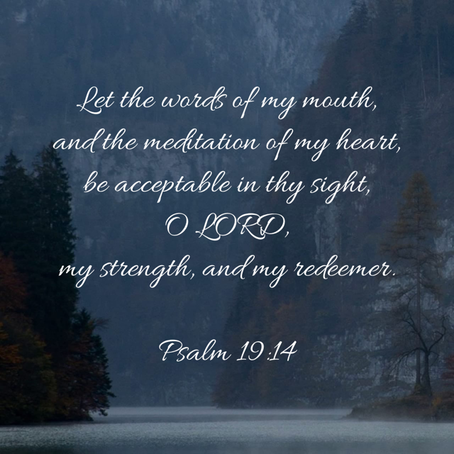
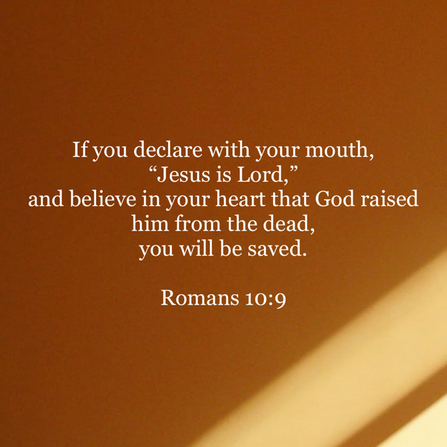
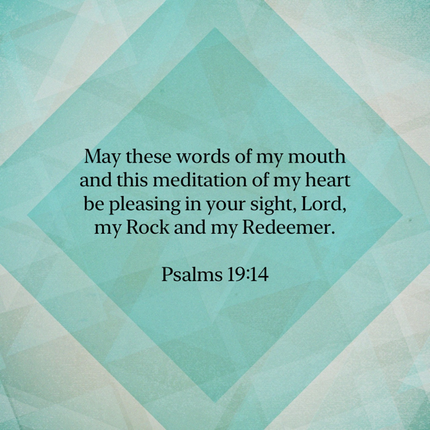
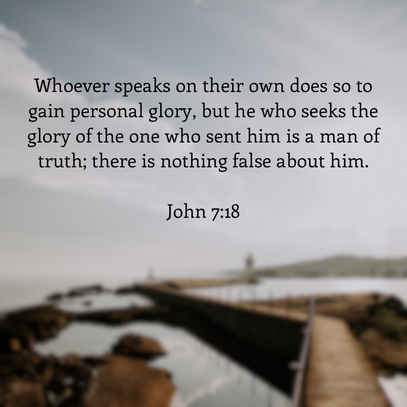
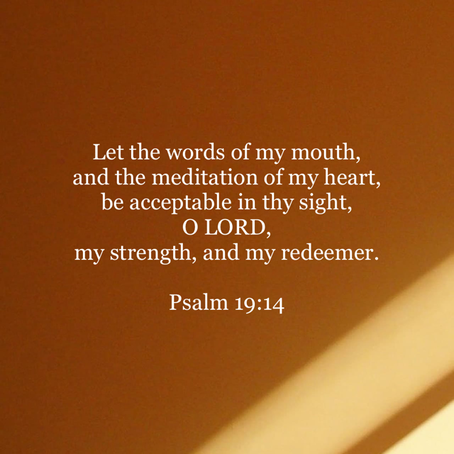
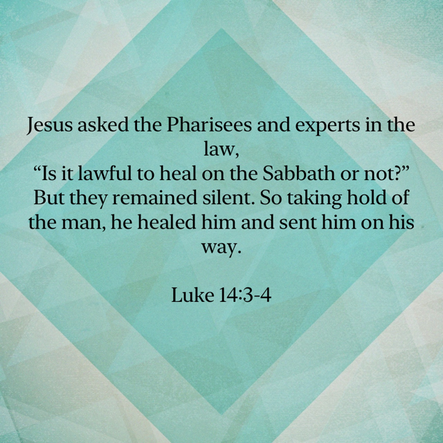
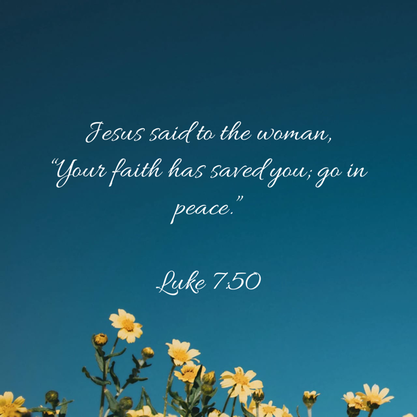
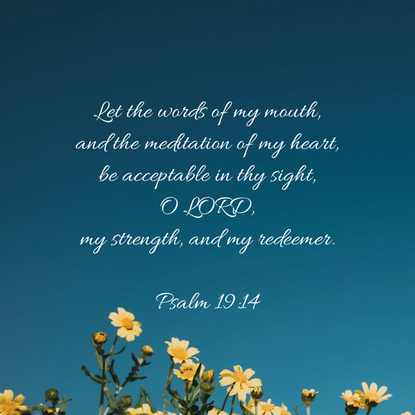
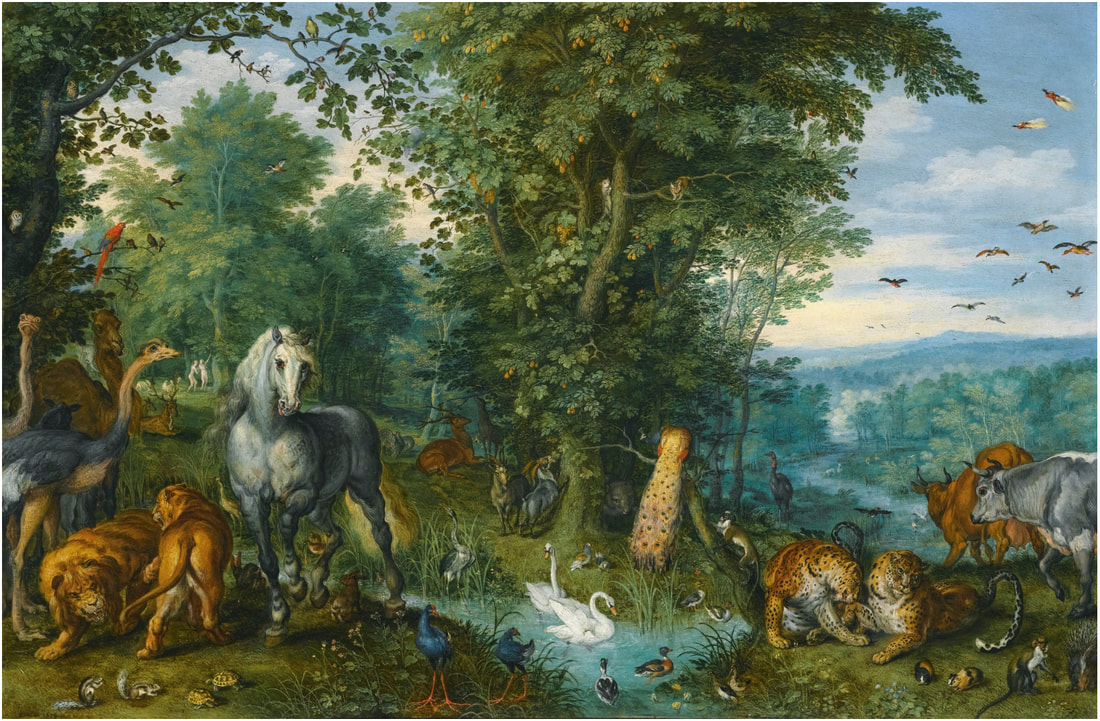

 RSS Feed
RSS Feed